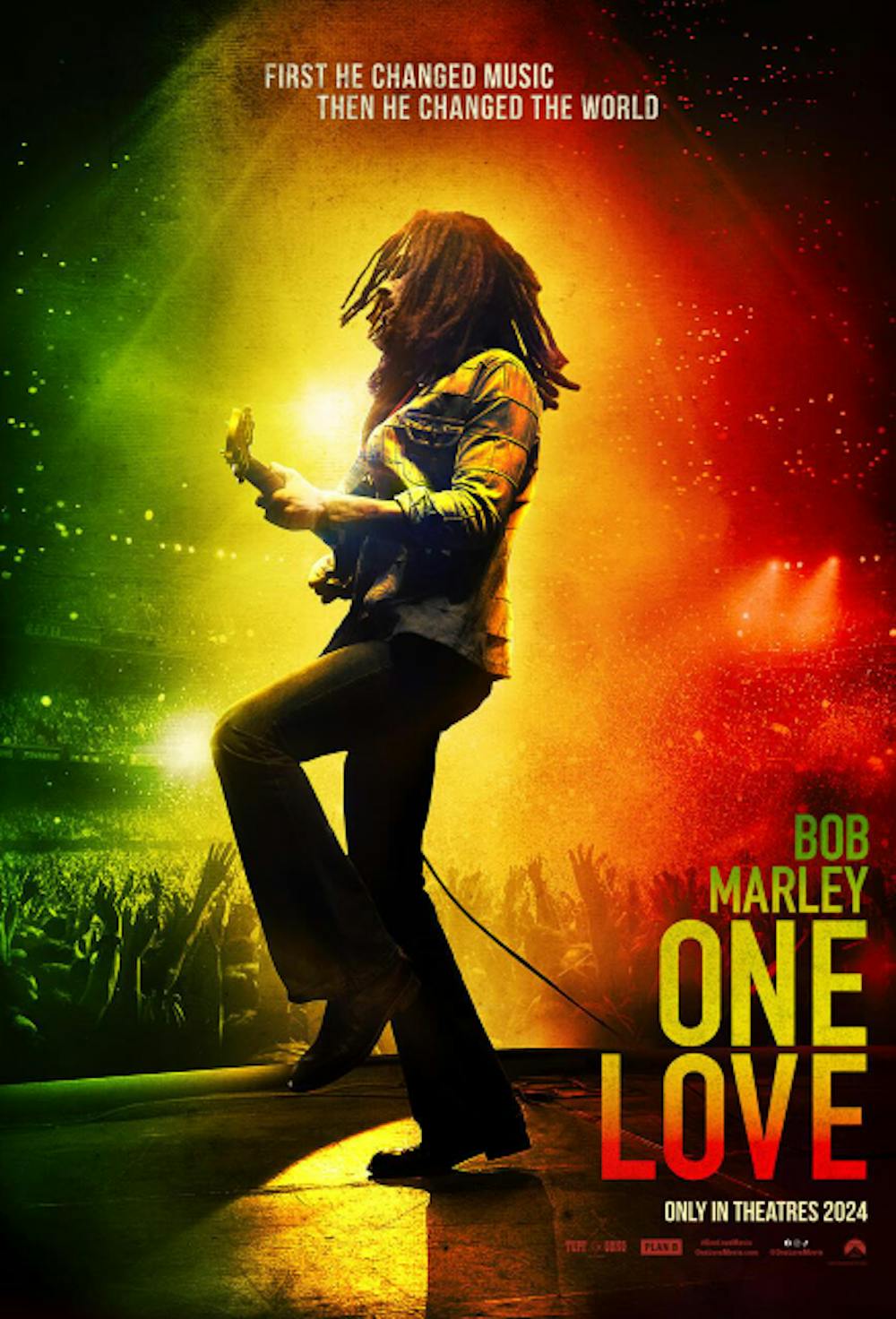Olivia Harrison
Staff Writer
The movie industry has released multiple music biopics in the past 10 years and biopics such as “Bohemian Rhapsody,” “Rocketman” and “Elvis,” which became box-office hits. With the success of previous biopics, “Bob Marley: One Love” was predicted to have good accolades and be an authentic portrayal of the musician.
Born as Robert Nesta Marley, and known by his stage name Bob Marley, Marley was a Jamaican reggae singer and songwriter. Throughout his career, he put Jamaican music on the map and also popularized other subgenres of reggae, such as Ska and Rocksteady.
Unlike most biopics, which feature a linear screenplay, viewers are immediately taken through 1976-1978, which was towards the end of Marley’s career. Viewers are introduced to Marley, portrayed by Ben Kingsley-Adar, who is preparing for a concert amid politically torn Jamaica. The concert is an attempt to promote peace, love and unity. Unfortunately, an assailant is amongst the shadows and attempts to assassinate both Marley and his wife, portrayed by Lashana Lynch.
The film then takes us to his time in London, England, where Marley recorded his renowned album “Exodus.” One of Marley’s most famous albums, Exodus defined the reggae and the Rasta movement. After the success of “Exodus,” Marley embarked on another world tour throughout Africa, leading to discourse with his wife and music producer Don Taylor, portrayed by Anthony Welsh.
With a non-linear plotline, viewers get an interesting perspective on Marley’s life and the end of his career. Viewers see images and flashbacks of influential parts of Marley’s past, such as his Caucasian father abandoning him. However, the scenes lack detail, not giving viewers much insight into how these events shaped Marley as a musician and person. In addition, influential scenes such as the attempted assassination of Marley, Rita and his manager Taylor are cut short, with the biopic immediately jumping into Kingsley performing various Marley songs. With the use of the non-linear plot, the events feel short-chained and as if the film lacks meaning.
Viewers never get an insight into Marley’s political activism or even the concept of Rastafarian spiritual beliefs. These aspects were a crucial part of who Marley was and his cultural success in Jamaica and beyond.
Although Marley’s son Ziggy Marley had heavy involvement in the film, the movie truly lacked aspects of who Marley was as a person, activist and artist. In a short clip introduction during the film, Ziggy Marley stated that the film would be an authentic representation of his father. While the movie was decent, the directors and producers could have shown many more facets to Marley. The film lacked true authenticity compared to other musical biopics.







